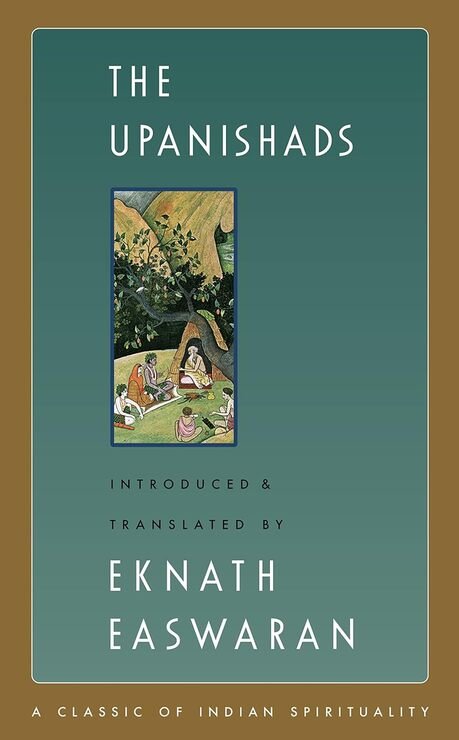Ancient Spiritual Wisdom Books
1. What Makes Ancient Spiritual Wisdom Relevant Today?
Ancient spiritual texts, often centuries or even millennia old, offer a unique doorway into the timeless principles of self-discovery, peace, and purpose.
These books don’t just tell us about a distant past; they tap into universal truths that help us navigate our own journeys in a chaotic, fast-paced world.
It’s fascinating how principles from ages long past resonates with today’s challenges.
They seem to have this profound, almost eerie knack for making sense of life’s biggest questions.
These books—are they from Eastern or Western traditions, religious or philosophical—hold a wealth of wisdom.
They’re like age-old mentors, offering a stable compass when modern life feels overwhelming.
The beauty of these texts is that they don’t just preach.
Instead, they provide a practical blueprint for a grounded, resilient mindset.

2. The Dhammapada – Buddhism’s Guide to Inner Peace
One of Buddhism’s central texts, *The Dhammapada*, is a gem of spiritual advice.
This collection of Buddha’s sayings encapsulates everything from mindfulness and compassion to the art of letting go.
*The Dhammapada* doesn’t get bogged down with grand promises; it’s honest and practical.
It says that life will bring suffering, but it also shows a way through it—by mastering one’s mind.
One thing that really stands out in *The Dhammapada* is the emphasis on self-awareness.
In a world flooded with distractions, it’s easy to lose touch with who we are.
Buddha’s words remind us to look within, suggesting that real happiness lies not in what we acquire but in how we think and act.
The text guides readers through cultivating qualities like kindness and patience, which are incredibly powerful yet often overlooked.
3. Tao Te Ching – Embracing Simplicity and Harmony
The *Tao Te Ching* by Laozi is a masterpiece of simplicity, advocating a life that flows effortlessly with nature.
Unlike some teachings that push for control, Laozi’s wisdom centers on letting go, embracing paradoxes, and trusting the natural order of things.
This book speaks to a kind of inner surrender, suggesting that by doing less, we actually achieve more.
What’s captivating about the *Tao Te Ching* is its sense of calm.
Every verse nudges readers to slow down and see life for what it is—a series of natural rhythms.
In a time when everyone’s trying to push forward, be in control, and chase ambition, Laozi’s words are a breath of fresh air.
It’s a reminder that sometimes the best path is the one of least resistance.
4. The Bhagavad Gita – The Battle Within
The *Bhagavad Gita*, part of the Indian epic *Mahabharata*, might be set on an ancient battlefield, but it’s fundamentally about the conflicts within.
Through a dialogue between Prince Arjuna and the god Krishna, it explores duty, ethics, and inner peace.
The Gita doesn’t shy away from life’s darker aspects—it acknowledges that life can be a struggle but argues that there’s wisdom to be found even in conflict.
What makes the *Bhagavad Gita* especially relevant is its depth on personal responsibility.
It encourages readers to perform their duties with detachment, doing their best without being overly concerned with outcomes.
This “yoga of action” is a powerful antidote to the anxiety and burnout so common today.
There’s a richness in the Gita’s teachings that makes it a manual for living with integrity and purpose.
5. Meditations by Marcus Aurelius – Stoic Wisdom for Everyday Life
While *Meditations* by the Roman Emperor Marcus Aurelius was never meant for publication, it’s become a cornerstone of Stoic philosophy.
Written as a personal journal, it reflects his thoughts on discipline, resilience, and acceptance.
This isn’t a lofty philosophical treatise; it’s more like a survival guide for the soul.
What’s striking about *Meditations* is its brutal honesty.
Marcus Aurelius grapples with his own flaws, reminding himself to stay humble, patient, and fair.
In an era of constant validation, his refusal to indulge in ego is refreshing.
*Meditations* doesn’t sugarcoat life’s challenges but offers a perspective to endure them gracefully, reminding readers that true power lies in self-mastery, not control over others.
6. The Upanishads – Mystical Dialogues on Reality and the Self
The *Upanishads* are ancient Indian texts that delve into the essence of reality and the self.
They’re deeply spiritual and philosophical, exploring questions like “What is the self?” and “What is the nature of reality?”
Reading the *Upanishads* is like embarking on an existential adventure—they’re more poetic than instructional, filled with metaphors and mystical insights.
What makes the *Upanishads* fascinating is their radical notion of unity.
They suggest that at the core of all existence, there’s a singular, infinite consciousness, or Brahman.
This idea, that the self (Atman) and the universe are one, challenges us to look beyond our narrow sense of individuality.
It’s a transformative perspective, especially when so much of life is centered on individual success and separation.
7. The Desiderata – Max Ehrmann’s Poetic Prescription for Life
Max Ehrmann’s *Desiderata* may not be as ancient as others on this list, but its wisdom is timeless.
Written in the 1920s, it’s a gentle reminder to live with compassion, humility, and grace.
Ehrmann’s words encourage readers to “go placidly amid the noise and haste,” a sentiment that feels almost revolutionary in today’s noisy world.
The *Desiderata* emphasizes kindness and self-respect, urging people to be true to themselves without falling into bitterness or cynicism.
It’s not a traditional “spiritual” text, yet its impact is profound.
Ehrmann captures a worldview that values inner peace over external validation, making it a guiding light for anyone seeking tranquility in a fast-paced world.
8. The Teachings of Confucius – Wisdom for Social Harmony
Confucius, the revered Chinese philosopher, left a legacy through his teachings, emphasizing respect, justice, and family loyalty.
Unlike other spiritual texts that focus on the self, Confucian teachings prioritize social harmony.
It’s about creating balance within society by cultivating virtues like empathy and respect.
Confucian principles offer practical guidance for everyday interactions, highlighting the importance of kindness and integrity.
At its core, Confucianism is about nurturing moral character—not through rigid rules but by practicing compassion and integrity.
In a time where social divisions are sharp, Confucius’s emphasis on unity and mutual respect feels more relevant than ever.
9. The Book of Proverbs – Timeless Wisdom in Simple Sayings
The *Book of Proverbs*, a part of the Hebrew Bible, is a collection of practical wisdom aimed at guiding moral and ethical choices.
Filled with short, punchy sayings, Proverbs touches on themes of honesty, diligence, and humility.
It’s straightforward yet profound, offering insights that apply as much today as they did thousands of years ago.
The beauty of Proverbs lies in its accessibility.
It doesn’t demand extensive study or background knowledge; instead, it speaks in simple language.
Each proverb is like a nugget of wisdom, ideal for anyone seeking clarity on issues of integrity, kindness, and humility.

10. The Egyptian Book of the Dead – A Guide to the Afterlife
The *Egyptian Book of the Dead* is a fascinating text that served as a guide for the deceased on their journey to the afterlife.
Though focused on death, it reveals a lot about how the ancient Egyptians viewed life.
They saw life as a preparation for the next world, with actions in this life directly influencing one’s journey after death.
What’s intriguing about the *Egyptian Book of the Dead* is its approach to morality.
This text suggests that life is a series of choices, with each action contributing to one’s ultimate fate.
In many ways, it encourages readers to live mindfully, considering the impact of their choices on themselves and others.

11. The Yoga Sutras of Patanjali – A Guide to Inner Control
The *Yoga Sutras*, written by the sage Patanjali, offer a structured approach to achieving inner peace.
These sutras outline an eight-limbed path to enlightenment, covering aspects like ethical conduct, meditation, and breath control.
The *Yoga Sutras* emphasize discipline and self-awareness as the foundations for spiritual growth.
Patanjali’s work is both practical and profound.
It speaks to those who are serious about self-mastery, offering step-by-step guidance on aligning the body, mind, and spirit.
In a world where mental health challenges are common, Patanjali’s focus on inner control feels more pertinent than ever.
12. The I Ching – Ancient Chinese Divination and Wisdom
The *I Ching*, or *Book of Changes*, is one of the oldest Chinese texts and combines philosophy with divination.
It’s structured as a series of hexagrams, each representing a situation or a state of being.
More than just a tool for fortune-telling, the *I Ching* is a guide for navigating life’s complexities by embracing change.
What’s compelling about the I Ching is its adaptability.
It doesn’t offer rigid advice; instead, it teaches flexibility and acceptance.
This fluidity makes it unique among spiritual texts, encouraging readers to approach life’s uncertainties with openness and courage.
Certainly, here’s the continuation for the section on the Quran.
13. The Holy Quran – A Pillar of Spiritual and Ethical Guidance
For millions around the world, the Quran is not just a holy book but a complete way of life.
Its verses cover all aspects of existence, from individual ethics to community dynamics.
The Quran emphasizes values like honesty, compassion, and justice, urging individuals to live with integrity and humility.
The teachings of the “Quran” stress the importance of balance—striving for success without neglecting spiritual growth, and contributing positively to society while respecting individual rights.
This sacred text is a guide to nurturing both the inner and outer self, encouraging readers to cultivate personal responsibility, patience, and empathy.
Its verses challenge readers to reflect on their actions and seek a deeper connection with the divine, making it a profound source of both spiritual insight and moral direction.





